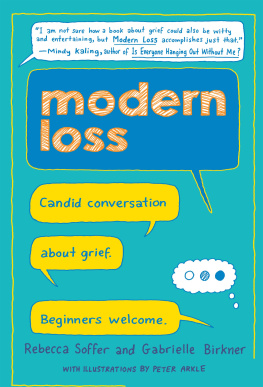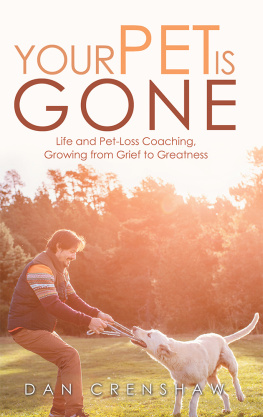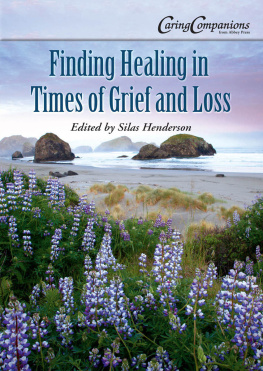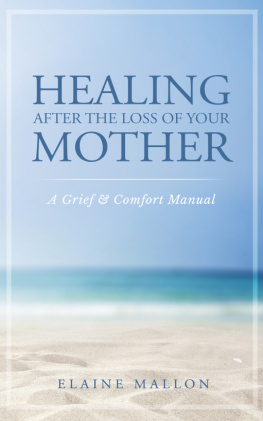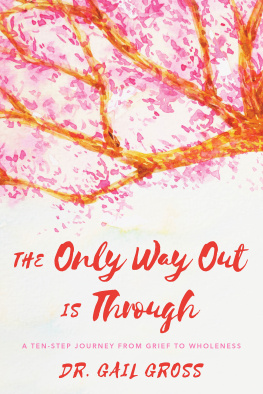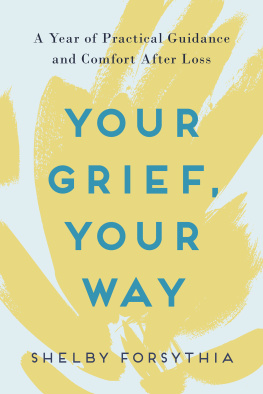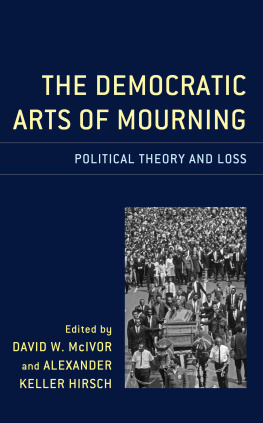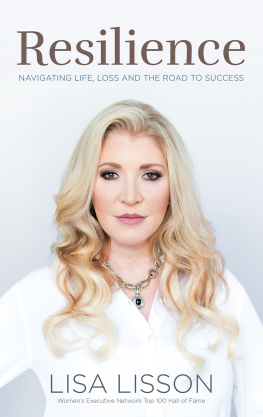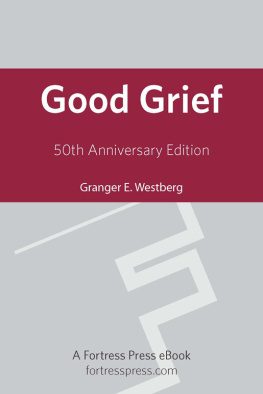For our parents
and our children.
Shelby & Ray Ruth & Larry Roni & Allan
Noah & Elliot Saul & Hank
The opposite of war isnt peace... its creation.
JONATHAN LARSON, RENT
CONTENTS
Guide
HI. WERE REBECCA AND GABI. We wish we never had a reason to meet in the first place, but were so glad we did.
It was the spring of 2007, at a dinner party for six women in their twenties and early thirties, held in a cramped Manhattan walkup with no dining room and weak AC. After a round of awkward greetings, we arranged ourselves in a rough circle with plastic plates full of baked ziti teetering on our laps. The host was a mutual friend, but the rest of us were total strangers to each other. And we had no idea whether we had anything in common other than (a) we all seemed to love cheese, (b) we all clearly had functioning sweat glands, and (c) we were all facing a life without at least one of our parents.
That last reason was why we had all shown up in the first place.
The first few minutes were spent quietly blinking across the room at each other. Finally, someone started speaking. Then someone else. Soon stories came pouring out of us, unfiltered, like the Two Buck Chuck wed been nervously sipping. As we worked our way through that pan of Italian red sauce, we fed our collective desireno, our needto share our experiences, our fears, and our outrages.
The result was massive relief. Relief even in the face of knowing that important relatives would be conspicuously and infuriatingly absent for all the hoped-for milestones that lay ahead: dog-adopting, home-buying, marriage, kids, career changes... exciting successes and idiotic missteps. And also proof that we werent going crazy for struggling well beyond the mythical the-first-twelve-months-is-the-worst period or wanting to slug the next person who innocently asked, No... really... how are you? Everyone else had assured us time would heal or wed get past it, but how did they know?
It had been surprisingly difficult to find other people our age who understood what wed been going through, or who could at least stick around to talk through our honest answers (after all, theyd asked). Even in a metropolis like New York, where you can easily get a guy in a bear suit to give you a hug.
Three years before that pivotal dinner party, Gabi, then twenty-four, was in the newsroom of the community newspaper, where she wrote obituariesyes, for realwhen she learned that her father, Larry, and stepmother, Ruth, had been murdered. The fatal connection: a frozen pipe and a call to a local plumbing company, which sent a methamphetamine addict with a long rap sheet to do the repair. That man would show up at their home about a month later, amid a four-day meth binge, intending to rob them. He ended up beating them to death inside their unassuming southwestern split-level. The house had a view of the Sedona, Arizona, red rock formations that people were always saying was to die forand here they were, dead. Two thoughtful, soulful, industrious humans with an energy, resolve, and sense of adventure that made them seem younger than they were, dead.
Just six months before that first ziti dinner, late at night on Labor Day 2006, Rebeccas parents, Shelby and Ray, dropped her off in New York City after their annual Lake George Adirondack camping trip, before continuing down the highway toward their hometown of Philadelphia. Less than an hour after a round of good-bye kisses and hugs, a murky object on the darkened road led to a violent car crash that left Shelby lifeless and Rebecca motherless. The accident was on the very turnpike that had always brought them safely back to each other.
Barely four years after Shelbys death, Ray was on a Caribbean cruise, trying to eke out something resembling enjoyment after losing the love of his life. Late one night in his cabin, his heart gave out. The nightmare Rebecca had been dreading became reality. Suddenly, she was orphaneda term shed always associated with very young Dickensian characters clutching dented pails.
This whole grief thing we were experiencing decades earlier than most of our friends? It was a total shit show. At the time, Rebecca spent her days (and some nights) producing political satire pieces for The Colbert Report. During the show tapings shed paste on a perma-smile while wondering how everyone could be laughing so hard when her beautiful, beloved mother was dead. After her fathers death, she couldnt comprehend how people could happily order fries with that, while she floated through the Twilight Zone, untethered from everything shed known.
For Gabi, the two obituaries she drafted the day after she received her Really Bad Newsone for her dad and another for her stepmotherwould be among the last of her obit-writing career. A merciful editor moved her onto the transportation beat after she returned to work on the heels of an epic shiva. There were fewer triggers covering the commuter railroad, to be sure. But during those early days, her grief found a way to seep out, regardless of where she was or whom she was talking to. That included, on one occasion, the tractor-trailer driver she happened to be interviewing for an article about big rig safety on the I-95 corridor. Some people, like that truck driver, rose to the occasion; others were clearly, and understandably, out of their wheelhouse. The same went for her friends.
Looking for kindred spirits, Rebecca attended a grief support group for people whod lost their parents. Everyone was nice enough, but she was the only one who didnt qualify for AARP. Feeling isolated, she left after one session without a real connection (though with a great mushroom barley soup recipe). Rebecca searched for solace in her parents friends but quickly learned everyoneincluding many of her own good friendseventually had to get back to their lives and problems. She found a wonderful and warm grief counselor with a vested interest in helping her live a quality life, but still... something was missing. She needed to meet other people whod been dumped onto a similar path.
Gabi had more luck on the support-group front. Every other week, she met with a group of people who had also lost loved ones, mostly young adult children, to homicide. These womenand one guyunderstood her in a way most others could not. They never suggested moving on after a year or two or twenty. It was a forever trauma, and everyone in this group knew that.
At night, though, we were both alone with very loud thoughts. We opened our laptops in search of comfort, but those searches (often containing phrases along the lines of Still grieving after two years am I pathetic? or How many days in a row is it okay to eat only mac and cheese?) yielded gently flickering e-candles, religious and mindfulness blogs, and Psychology Today articles that seemed to suggest that we might actually be going crazy. (Word to the wise: Stay away from the DSM-IV.)
The truth was, we didnt always want to be mindful or tend to a Zen garden. We didnt want to hear that everything happens for a reason or that heaven needed another angel or any other phrase suitable for embroidering onto a throw pillow. We were pissed and lost and wanted to know that someone else understood that when life decks you where it hurts the most, everything is a potential trigger. That its perfectly acceptable to ugly-cry on the subway en route to work. Or hear crickets on a date once a dead parent is mentioned. Or avoid Halloween because people dress up like murder victims for fun.
It took a while. Longer than we would have preferred. But we slowly pulled ourselves out of our personal caves. And it happened because we decided not to be apologetic or embarrassed about our grief.
The sweaty little cheese lovers our friend gathered for that first awkward dinner party began to meet once a month. Because we didnt feel like using the term
Next page
